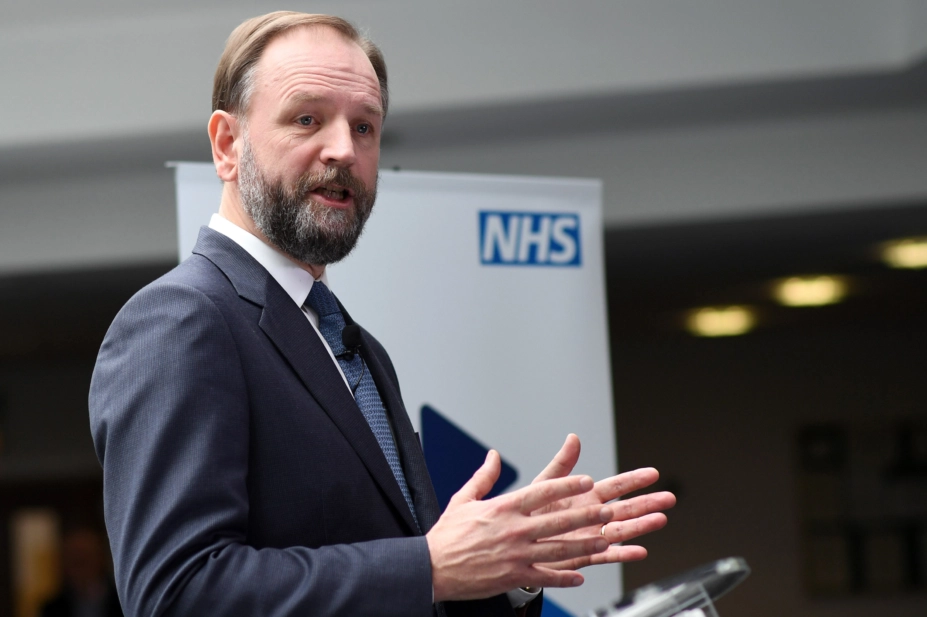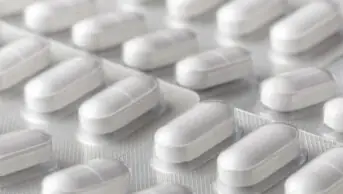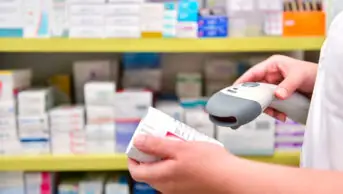
Stefan Rousseau/PA Archive/PA Images
The chief executive of NHS England has described the decision of the manufacturer of a first-line medication for bipolar disorder to discontinue making it as “completely unacceptable” and has accused it of “trying to jack the prices of a long-standing medicine”.
Sir Simon Stevens accused Essential Pharma, which manufactures Priadel 200mg and 400mg, of “using the cover of coronavirus to try and price-gouge British taxpayers”, the Health Service Journal
(HSJ) reported on 25 September 2020.
His comments were made at the HSJ’s integrated care virtual summit, and later confirmed by NHS England to The Pharmaceutical Journal.
They follow an announcement made by the manufacturer in August 2020 that it would be discontinuing production of both Priadel 200mg and 400mg modified-release tablets in the UK, with supplies expected to be exhausted by April 2021.
The company said in a statement that the claims made by Sir Simon “are unfounded, factually incorrect and highly damaging to our business”, adding that the discontinuation “has nothing to do with” the COVID-19 pandemic.
The Royal Pharmaceutical Society has raised concerns that the discontinuation would create a “huge extra cost” to the NHS and later wrote to the Department of Health and Social Care, alongside nine other health bodies, calling for the government to intervene in the withdrawal.
By withdrawing Priadel 400mg and 200mg from the market, patients will be switched to more expensive lithium carbonate products under government advice. Two of these more expensive products are owned by Essential Pharma.
Priadel 400mg and 200mg are currently priced at £4.02 and £2.76 per pack of 100, respectively. Meanwhile, Camcolit 400mg (Essential Pharma) costs £48.18 per pack of 100 and Essential Pharma’s generic lithium carbonate 250mg costs £87 per pack of 100. The manufacturer’s generic product was branded as Camcolit 250mg until 2015.
The other lithium carbonate alternative, Liskonum, which is owned by Teopharma, costs £11.84 per pack of 100.
Sir Simon accused Essential Pharma of “trying to jack the prices of a long-standing medicine”, describing it as a “price hike” that was “completely unacceptable” and risked introducing “clinical risk for vulnerable patients”.
“I hope where we find those isolated examples — you know, a private-equity backed pharma company trying it on — we can take action, and if there needs to be changes in the law to enable that to happen, well, perhaps that’s the sort of thing that could be included in the upcoming NHS bill,” he said.
Essential Pharma said in a statement to The Pharmaceutical Journal that Sir Simon’s comments “are unfounded, factually incorrect and highly damaging to our business as well as our relationship with the Department of Health”.
“We have been supplying Priadel to the UK market at a loss for over two years and continue to do so,” the statement said.
“The difficult decision to discontinue Priadel follows discussions with the Department of Health, where we attempted to establish a sustainable price but were unsuccessful principally due to the limitations of the VPAS system.
“This very disappointing outcome has made the continued supply of this loss-making product in the UK unviable and unsustainable for Essential Pharma,” it continued.
Essential Pharma added that the discontinuation of Priadel “also has nothing to do with Covid-19 as suggested by Sir Simon”.
“Due to the current pandemic, Essential Pharma has committed to the Department of Health to extend the supply of Priadel for an additional six months, until 6 April 2021, at a continued uncompensated loss to ourselves, to allow time for patients to be transitioned to suitable alternative lithium products. This is because patient safety is, and will continue to be, at the heart of any decision that Essential Pharma takes.”


